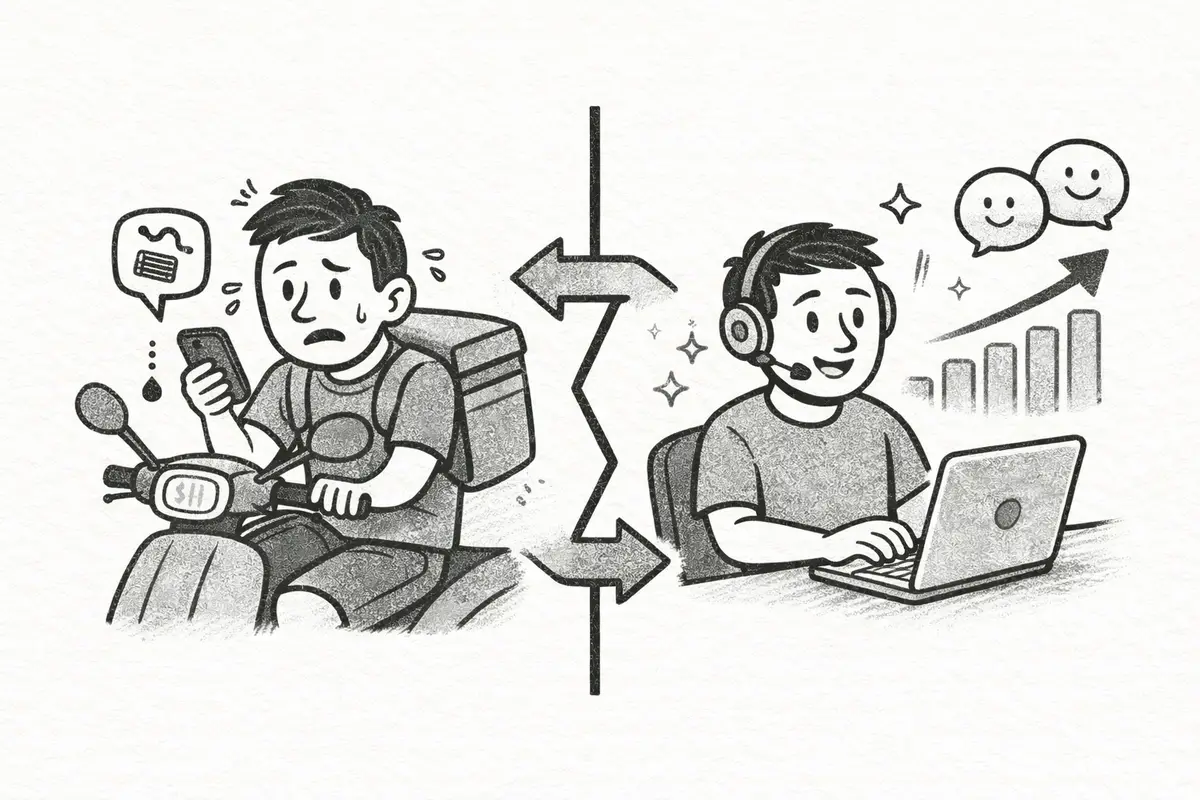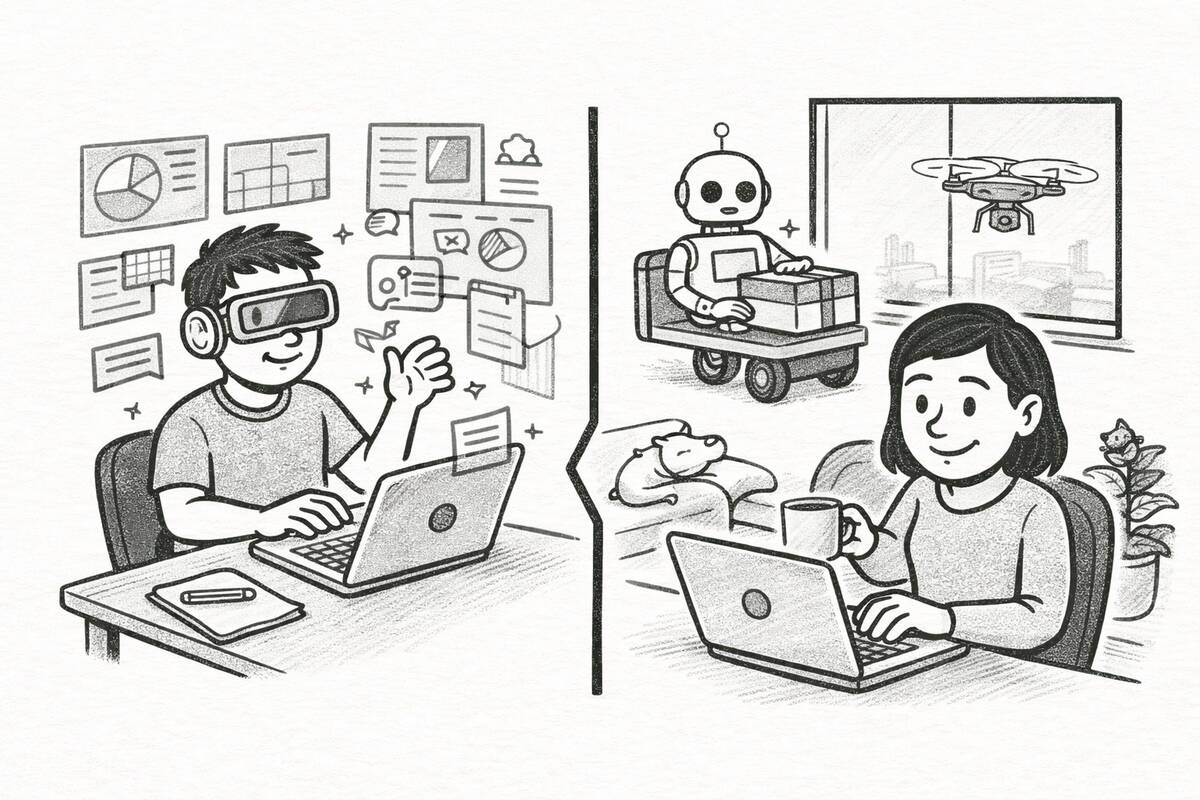You are not “working from home.” You are a professional operating from a remote location. This is your command center, not your living room. The distinction is critical. For over a decade, I have built and led distributed teams where performance is the only metric that matters. The individuals who thrived were not the ones who saw remote work as a perk; they were the ones who treated it as a discipline. They understood that autonomy is not a gift—it is earned through radical accountability and an unwavering commitment to operational excellence.
The list that follows is not a collection of friendly “tips.” These are the operational rules that separate the high-impact remote professional from the person who is simply “online.” If you are serious about commanding your career from any location, you will not just read these rules. You will implement them.
Category I: The Non-Negotiable Foundation
This is the bedrock. Without this mental framework, all other tactics are useless.
Rule #1: You Are Not “Working From Home.” You Are a Remote Professional.
Language dictates mindset. “Working from home” implies a casual, temporary state. “Remote professional” defines an identity. Your home is now your office. Treat it with the same respect. This mental shift is the prerequisite for everything else.
Rule #2: The Commute Is Not Dead. It Is Replaced.
The commute used to be a psychological buffer between your personal and professional life. It’s gone. You must replace it with a “Startup Ritual” and a “Shutdown Ritual.” This is a non-negotiable 15-minute block at the beginning and end of your day.
- Startup: Don’t roll out of bed and open your laptop. Hydrate, get dressed, review your top 3 priorities for the day. Create a clear “start” signal for your brain.
- Shutdown: Don’t just close the laptop. Review what you accomplished, plan tomorrow’s priorities, and then physically step away from your workspace. The day is over.
Rule #3: Your Calendar Is Your Boss.
In an office, ambient activity creates the illusion of productivity. Remotely, there is only you and your output. Your calendar is your strategic tool for ensuring that output. If a task—deep work, a break, a meeting—is not on your calendar, it does not exist. Time-blocking is not a suggestion; it is a requirement.
Category II: Structuring Your Day for Peak Output
Amateurs let the day happen to them. Professionals design their day.
Rule #4: Eat The Frog. No Exceptions.
Your willpower and cognitive energy are at their peak in the morning. Use it on your most difficult, high-value task (your “frog”). Do not open your email. Do not check Slack. Your first 90-120 minutes of the day are for generating value, not reacting to requests.
Rule #5: Engineer Your “Deep Work” Blocks.
Shallow, distracted work is the default state for the undisciplined remote worker. You must be ruthless in protecting 2-3 hour blocks of uninterrupted time for deep work. Turn off notifications. Put your phone in another room. Signal your status as “unavailable.” Your greatest career breakthroughs will happen in these blocks.
Rule #6: Master Asynchronous Communication.
The belief that every question requires an immediate meeting or call is the hallmark of an inefficient organization. Default to asynchronous communication (email, project management tools, detailed documents). A synchronous meeting should be a tool of last resort for complex problem-solving or critical decision-making, not a starting point.
Rule #7: The “3-Block Day” Structure.
A simple but powerful framework:
- Morning Block (e.g., 9 AM – 12 PM): Deep Work. Creator mode. No meetings.
- Midday Block (e.g., 1 PM – 3 PM): Collaborative Work. Meetings, calls, team syncs.
- Afternoon Block (e.g., 3 PM – 5 PM): Shallow Work. Emails, administrative tasks, planning for tomorrow.
My Rule: Your job is not to be “available” for eight hours. Your job is to produce high-value output. Structure your day to serve that output, not the other way around.
Category III: Communication & Visibility Protocols
Out of sight cannot mean out of mind. You are the CEO of your own visibility.
Rule #8: Over-Communicate Your Progress.
In an office, people “see” you working. Remotely, you must create that visibility. This isn’t about micromanagement; it’s about professional transparency. Send a weekly summary of your accomplishments and priorities. Post clear updates in project management tools. Make your work impossible to ignore.
Rule #9: Your “On-Camera” Presence Is Your Brand.
Every video call is a reflection of your professional standards. “My camera is broken” is an unacceptable excuse. Invest in a decent webcam, a good microphone, and proper lighting. Have a clean, professional background. You are being judged on your remote presence. Ensure it’s impeccable.
Rule #10: Set Communication SLAs (Service Level Agreements).
Define and communicate your standard response times. For example: “I respond to Slack messages within 90 minutes and emails within 4 hours.” This manages expectations, allows you to batch your communication, and prevents you from becoming a slave to notifications.
Rule #11: Run Meetings Like a Special Operator.
Remote meetings are expensive drains on time and energy if run poorly. Every meeting you run must have a clear agenda, stated objectives, and end with documented decisions and action items. If a meeting has no clear objective, decline it.
Category IV: Environment & Boundaries
Your physical environment dictates your mental state. Engineer it for performance.
Rule #12: Designate a “Performance Zone.”
You must have a dedicated workspace. It can be a separate room or a corner of a room, but it must be a psychologically distinct space that your brain associates only with work. When you are in the zone, you are working. When you leave it, you are not.
Rule #13: The Kitchen Is Not Your Office.
Working from the sofa or the kitchen table blurs the lines between your work and personal life, leading to a state where you feel like you are never truly “on” or “off.” This is a direct path to burnout. Maintain physical separation.
Rule #14: Enforce Hard Boundaries with Your Household.
Your family or roommates are not your coworkers. You must have a direct conversation to establish your work hours and the rules of engagement. A closed door must mean “I am in a deep work session and cannot be disturbed unless it is a genuine emergency.”
Rule #15: Dress for the Job You Command.
How you dress signals intent to your own brain. While a full suit may not be necessary, changing out of your sleepwear into work-appropriate attire flips a psychological switch. It tells your brain it’s time to perform. “Pajamas all day” is for people who are phoning it in.
Category V: Sustaining High Performance
Burnout is not a badge of honor. It is a sign of a failed system.
Rule #16: Schedule Your Breaks Like You Schedule Meetings.
In an office, breaks happen naturally. Remotely, you can end up chained to your desk for hours. Schedule two 15-minute breaks and a full lunch break on your calendar. Use them to stand up, stretch, hydrate, and get away from the screen.
Rule #17: The Shutdown Ritual is Non-Negotiable.
I am repeating this because it is that critical. At the designated end of your day, execute your shutdown protocol. Review, plan, and then physically close the laptop. The act of closing it is a powerful psychological signal that the workday is complete.
Rule #18: Build an “Accomplishment Log.”
Remote work can feel isolating and thankless. To combat this, keep a simple document where you log your wins and positive feedback each week. When you’re questioning your impact (a common symptom of “imposter syndrome”), this log is the hard data that proves your value.
Your Mandate
This is not a buffet where you pick and choose the rules you like. This is an integrated system for professional excellence in a remote environment.
Your task is simple. Choose one rule from each of the five categories. For the next seven days, implement them with absolute discipline. Do not deviate.
Stop treating remote work as a vacation. Start treating it as the discipline it is. Your career will thank you for it.
You might also like: The Mental Health Benefits of Taking a Career Break









